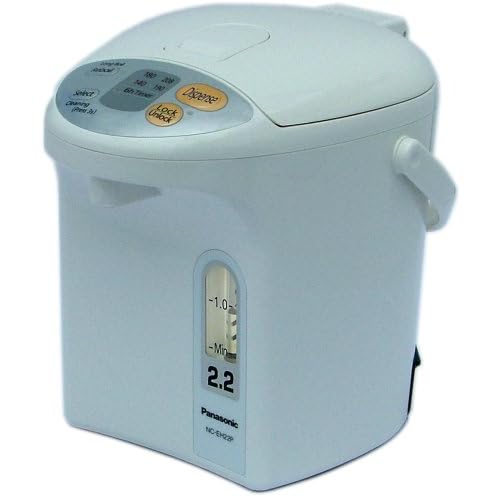Ray,
I have the Panasonic, I think on Jim's recommendation, and I love it. As a matter of fact I just filled it and put it on the 6hr timer. Should be ready for me when I make my morning tea. I have heard regarding the Zojirushi, that it consumes the same amount of energy as an alarm clock, not sure that is true but like saying it. And as noted above, the Panasonic is half the price of the Zojirushi and seems to do the same thing. The Zojirushi may have a filter, but I use filtered water.
Good luck
I have the Panasonic, I think on Jim's recommendation, and I love it. As a matter of fact I just filled it and put it on the 6hr timer. Should be ready for me when I make my morning tea. I have heard regarding the Zojirushi, that it consumes the same amount of energy as an alarm clock, not sure that is true but like saying it. And as noted above, the Panasonic is half the price of the Zojirushi and seems to do the same thing. The Zojirushi may have a filter, but I use filtered water.
Good luck





